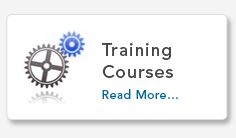Introduction
Behaviour Based Safety has lately become the buzz word in our constant fight against injuries and losses. As such, many companies has climbed onto the proverbial bandwagon in offering this as the ‘’silver bullet’’ in fixing all our problems. Sadly, many of these companies can today again look back at yet another expensive initiative that did not deliver. Why?
Simple stated, behaviour change is but an element of organisational culture change, and unless all elements of this cultural change is managed, behaviour based safety becomes but an observational program that does not change the culture, and inevitably die a silent death. Systems, Risk and Leadership is not only integral part of organizational culture change, but are also essential elements that must therefore be addressed in your BBS programs. Behaviour and Risk is integrated, and your BBS approach must recognise and address this principle clearly
This course is therefore aimed at creating an understanding of the principles and interrelationships amongst these crucial elements, and shows the principles that must be addressed very clearly. A must for anyone who is planning to invest in, or consider implementing a BBS program
Course Objectives
This course provides participants with an understanding and working knowledge on the principles of Organizational culture change – from a practical perspective.
Case studies and examples will clearly illustrate how the implementation of a BBS program can be achieved practically.
Summary of Content
Through case studies and industry best practise approaches, delegates learn:
- The principles and drivers of Organizational culture change
- The relationship between culture change and safety/risk management systems
- The role of Leadership in Culture Change and BBS
- The roles of systems in Behaviour change
- The enablers of behaviour change
- How risk and behaviour can be integrated practically
- What comes first, behaviour or systems?
- Where do we start, and how
- Practical lessons learned from BBS implementation
- Observations
- Recording
- Feedback
- Improvement
- Participation
- Tracking
Aimed NQF Level – NQF Level: 4 – 5
- Executives and Managers responsible for, or involved in SAFETY and Risk Management,
- Executives and Managers responsible for training and Human resources
- SHEQ Practitioners/ Safety Officers/Business Improvement People who are responsible
- to facilitate continuous improvement
Duration – 3 Days
Group size – 10 – 15
Please contact Expectra for pricing on these courses









